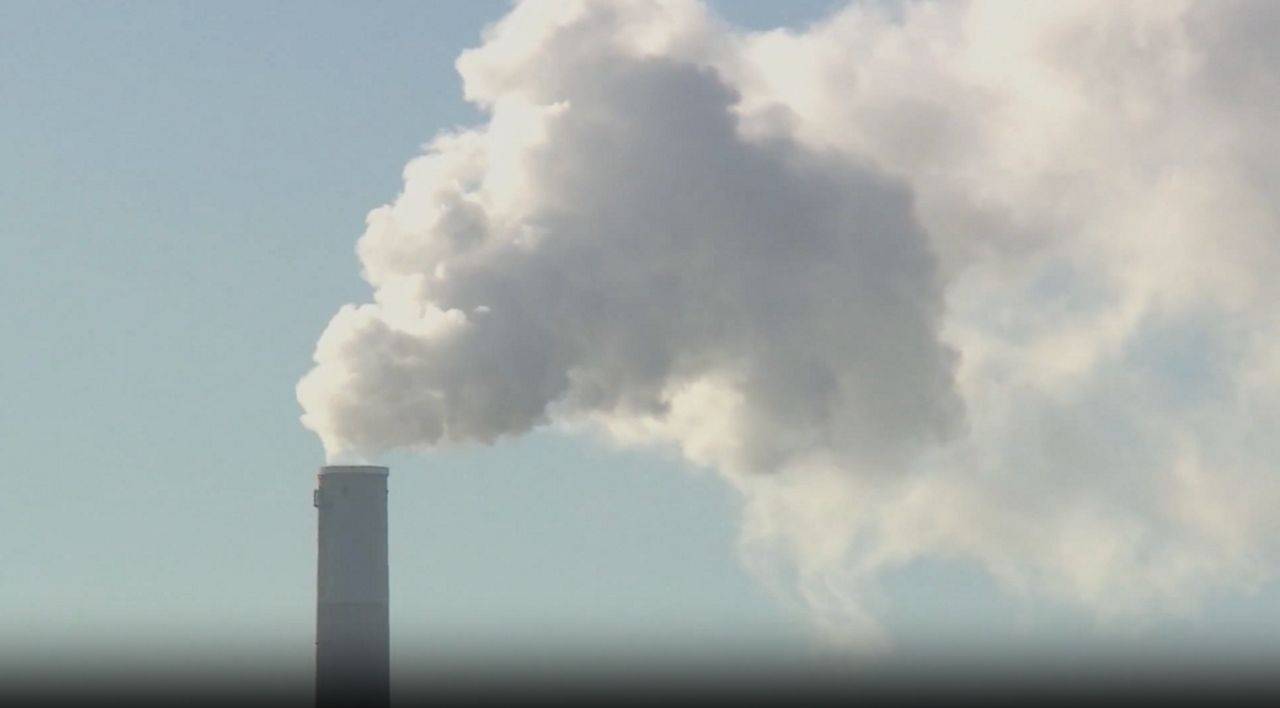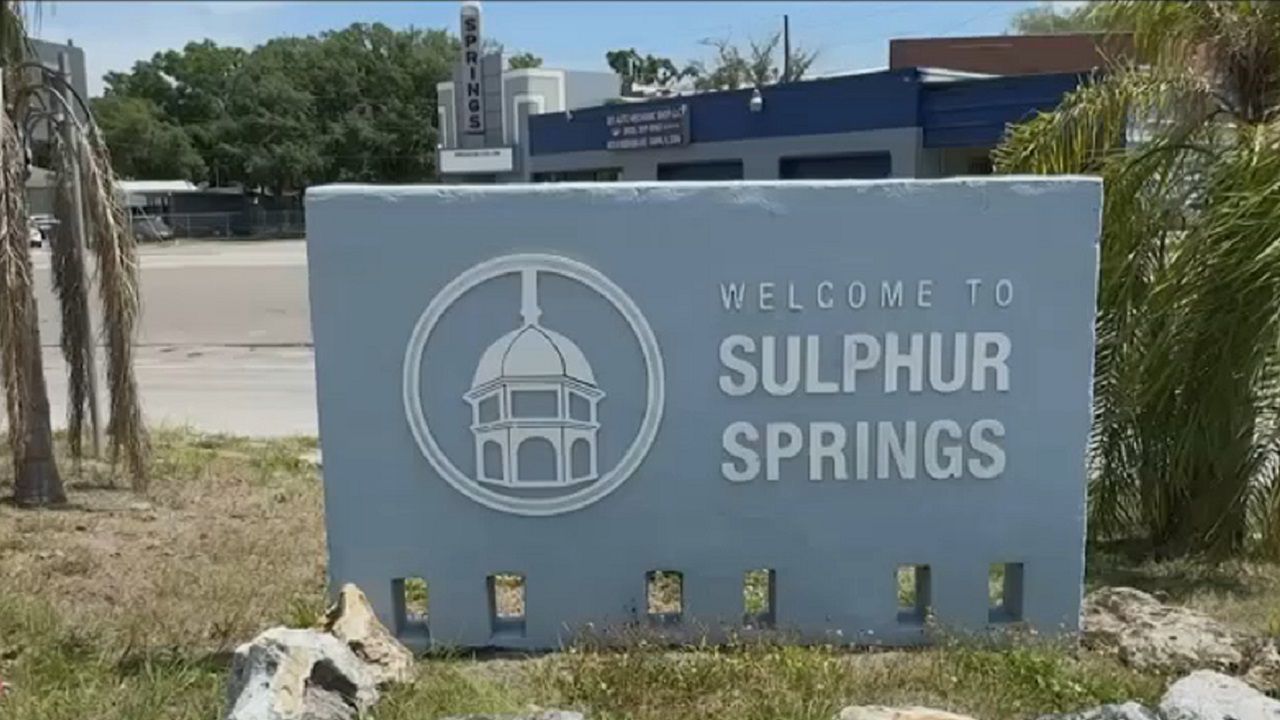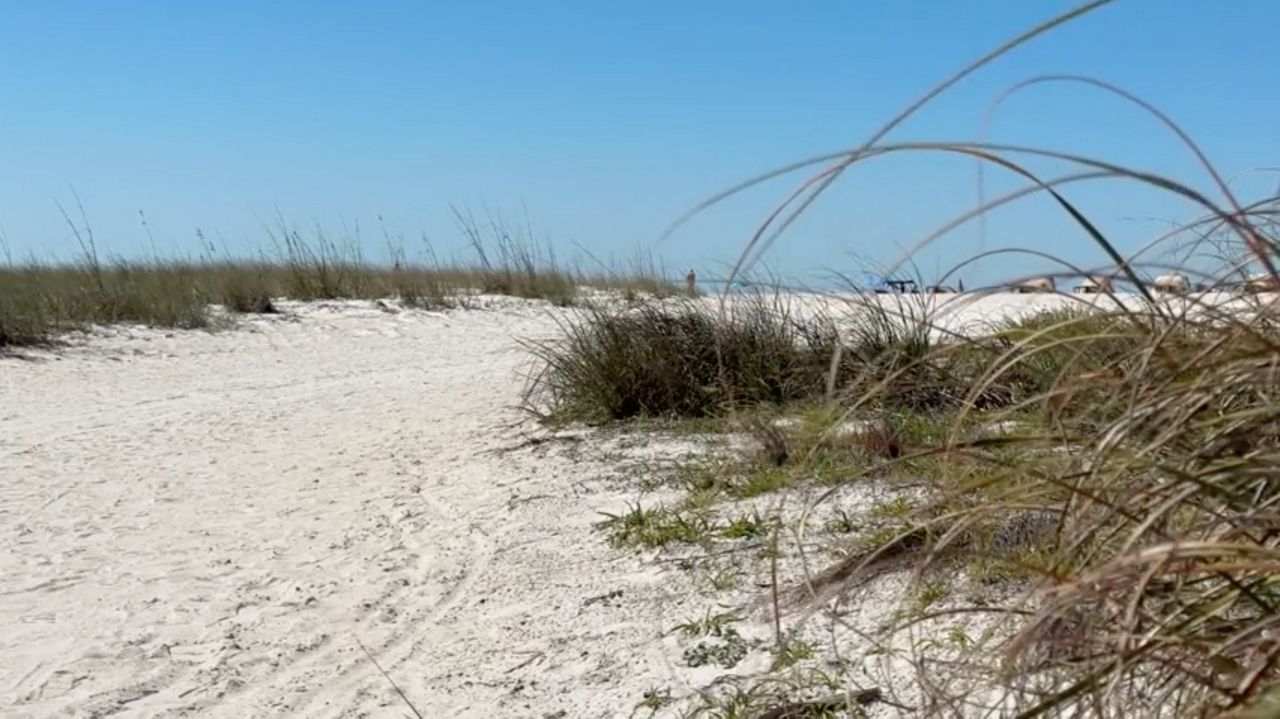TAMPA, Fla. — As students from the University of South Florida returned to classes Monday following spring break, some are taking part in a protest and hunger strike on the school’s campus.
What You Need To Know
- USF students started protests on Monday afternoon and announced the start of a hunger strike
- Students are asking USF president Rhea Law to call for a ceasefire and humanitarian aid to Gaza, as well as ask the university to make their investment portfolio from 2013 to 2023 open to the public
- Eighteen students are part of the hunger strike
On Monday, a group of student activists is protesting at USF’s library before marching to the Marshall Student Center. At the protest, the participating group of students started a hunger strike and refused food until they can come to an agreement with administration.
They’re asking USF president Rhea Law to call for a ceasefire and humanitarian aid to Gaza, as well as asking the university to make their investment portfolio from 2013 to 2023 open to the public. The group wants USF to divest from five companies, including Hewlett Packard, Boeing, Lockheed Martin, Northrop Grumman and Caterpillar.
In addition, they want USF to establish a Student Oversight Committee so students can weigh in on future investments.
A handful of student protesters spoke their minds at the Board of Trustees meeting, saying that the university isn’t paying attention to their demands.
The students say the school invests in companies that produce weapons used in the war in Gaza. Board of Trustees Chair William Weatherford says that isn’t true, and he advises against going on a hunger strike.
Third-year student Elina Atiq, who planned to take part in the hunger strike, says different groups of students over the last decade have tried to get the attention of the USF administration through protests, petitions and meetings, but nothing has worked.
“All the other ways that would work haven’t worked,” Atiq said. “They made it very clear that they’re not going to listen to the demands of their student body unless we do something insane like this.”
Eighteen students are part of the hunger strike. They say they have consulted with medical professionals about staying hydrated, and don’t know how long it will last.
After officials at USF heard of the possible hunger strike, Dean Winston Jones coordinated a meeting with those leading the charge to warn of the safety risks, school spokesperson Althea Johnson confirmed.
“The University of South Florida’s highest priority is the health and safety of our students, faculty and staff. When USF learned last month that a group of students were planning a hunger strike, we immediately became concerned about the well-being of participants. Our staff members, including a representative from Student Health Services, initiated a meeting with the organizers to better understand whether the activity would put students at risk. Following the meeting, the USF Dean of Students Office sent the attached letter to the student organization.
It is our understanding that a second group of students, which includes some, or all, of the members of the original group, is still planning to move forward with a hunger strike. USF continues to have concerns about risks associated with this type of activity,” Johnson wrote in an email.
The dean’s office issued a cease and desist letter to one of the leaders of the registered campus organization, Students for Socialism at USF. Students who plan to participate say they are not representing any specific organization.
In the letter, Dean Jones required all social media posts regarding the hunger strike to be taken down and said the school could consider disciplinary action.
“I am directing the organization Students for Socialism at USF, to cease immediately your active and/or passive support, coordination, and publication of the Hunger Strike,” the letter reads. “To demonstrate compliance with this directive, all advertising of the hunger strike needs to be removed from all social media accounts.”
The letter goes on to say that failure to comply could result in further disciplinary action against the organization as it compromises health and safety of team members.
“Student movements are very impactful,” Atiq said. “They hold a lot of sway and these institutions are complicit and we’re a part of them and we’re the perfect people to be advocating for divestment.”










